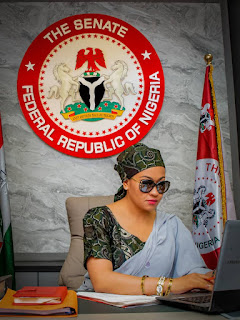Malabu scandal: Court papers expose Nigerian officials who authorised payments of $875m
Court documents filed by US banking giant, JP Morgan Chase Bank, have revealed the Nigerian officials who authorised payments of $875 million to accounts linked to a former Nigerian oil minister in the fraudulent Malabu deal, Dan Etete.
The details are contained in a fresh claim filed by the bank to counter the massive claim for damages filed by the Federal Government in 2017. Those named to have authorised the payments, which were made in 2011, are Yerima Ngama, who was then Minister of State for Finance and Otunla Ogunniyi, then Accountant-General of the Federation.
The two others named as authorised signatories at the time were Danladi Kifasi, Permanent Secretary at Federal Ministry of Finance and Babayo Shehu, Director of Funds at the Office of the Accountant-General. Last November, the Federal Government had sued the bank for $875 million (N315 billion) in London courts over its alleged failure to block payments made from the massive Malabu oil deal that is under a string of international corruption investigations. In the civil claim issued in the High Court, the government argued that JP Morgan had been “grossly negligent” when it was banker to a previous government.
The claim alleged that JP Morgan did not act “with the reasonable care and skill to be expected of a bank in compliance with the laws of England and Wales” when it authorised enormous payments resulting from the 2011 oil deal.
There was an “abuse of the banking system,” the claim said, adding that JP Morgan “could and should” have done enough reasonable due diligence to discover the deal involved, the “misappropriation” of up to $1.1 billion from state coffers. It, therefore, demanded that the bank repay $875 million it paid out to Mr. Etete, in addition to interest, and to account for the rest. Counter claim The bank, in its counter claim, submitted in the Business and Property Courts of England and Wales, denied any wrongdoing.
The document, according to online publication, Premium Times, was dated March 29 and signed by Rebecca Smith, a representative of the bank’s solicitor–Freshfields Bruckhaus Deringer LLP, London. The bank admitted that on May 4, 2011, an escrow agreement was concluded between the Federal Government of Nigeria (FGN), JP Morgan and two other parties, including Shell’s SNEPCO and Agip(Eni).
The government had earlier in April 2011, agreed to allocate the controversial OPL245 to both SNEPCO and NAE, with agreement that the two parties will transfer $1,092,040, 000 to a Nigerian government’s escrow account with JP Morgan. The bank, which became an ‘Escrow agent’ by the terms of the deal, said it was obliged to receive the money and transfer to accounts nominated by the federal government but was not a party to the Malabu resolution deal.
Judicial symbol for justice
The details are contained in a fresh claim filed by the bank to counter the massive claim for damages filed by the Federal Government in 2017. Those named to have authorised the payments, which were made in 2011, are Yerima Ngama, who was then Minister of State for Finance and Otunla Ogunniyi, then Accountant-General of the Federation.
The two others named as authorised signatories at the time were Danladi Kifasi, Permanent Secretary at Federal Ministry of Finance and Babayo Shehu, Director of Funds at the Office of the Accountant-General. Last November, the Federal Government had sued the bank for $875 million (N315 billion) in London courts over its alleged failure to block payments made from the massive Malabu oil deal that is under a string of international corruption investigations. In the civil claim issued in the High Court, the government argued that JP Morgan had been “grossly negligent” when it was banker to a previous government.
The claim alleged that JP Morgan did not act “with the reasonable care and skill to be expected of a bank in compliance with the laws of England and Wales” when it authorised enormous payments resulting from the 2011 oil deal.
There was an “abuse of the banking system,” the claim said, adding that JP Morgan “could and should” have done enough reasonable due diligence to discover the deal involved, the “misappropriation” of up to $1.1 billion from state coffers. It, therefore, demanded that the bank repay $875 million it paid out to Mr. Etete, in addition to interest, and to account for the rest. Counter claim The bank, in its counter claim, submitted in the Business and Property Courts of England and Wales, denied any wrongdoing.
The document, according to online publication, Premium Times, was dated March 29 and signed by Rebecca Smith, a representative of the bank’s solicitor–Freshfields Bruckhaus Deringer LLP, London. The bank admitted that on May 4, 2011, an escrow agreement was concluded between the Federal Government of Nigeria (FGN), JP Morgan and two other parties, including Shell’s SNEPCO and Agip(Eni).
The government had earlier in April 2011, agreed to allocate the controversial OPL245 to both SNEPCO and NAE, with agreement that the two parties will transfer $1,092,040, 000 to a Nigerian government’s escrow account with JP Morgan. The bank, which became an ‘Escrow agent’ by the terms of the deal, said it was obliged to receive the money and transfer to accounts nominated by the federal government but was not a party to the Malabu resolution deal.




Comments
Post a Comment
Disclaimer: The comments on the blog are the views and opinions of the readers and does not represent that of Confluence Reporters.